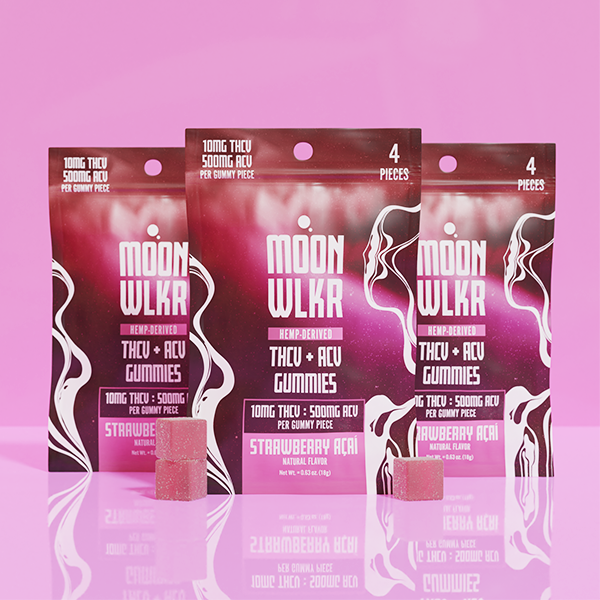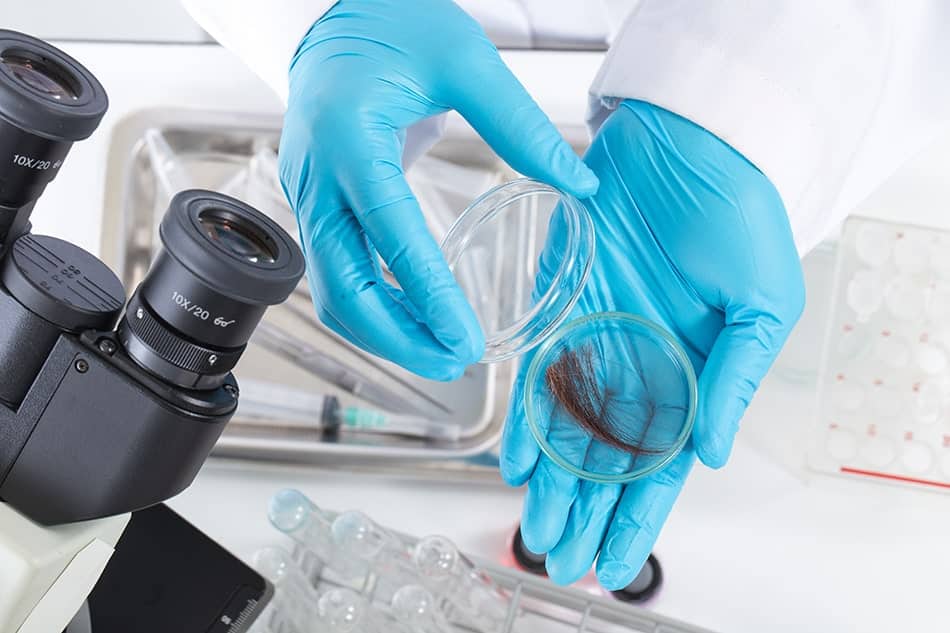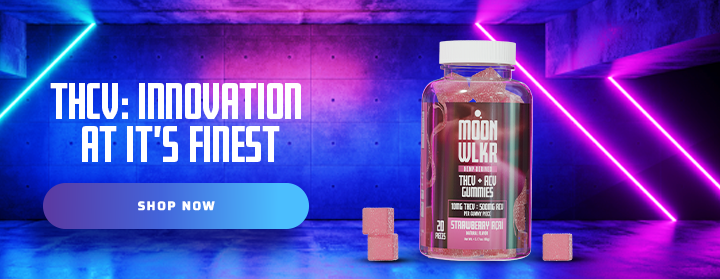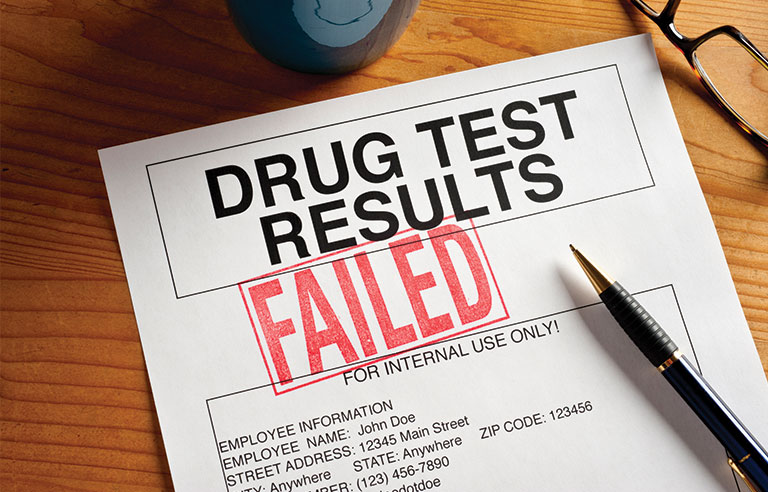As the interest in cannabinoids and their potential health benefits continues to grow, so does the curiosity surrounding their impact on drug testing, and this question is becoming increasingly relevant.
While the recreational and medicinal use of cannabis gains acceptance in many regions, employment-related drug testing remains a common practice, creating a conundrum for individuals navigating the fine line between personal wellness choices and professional responsibilities.
One lesser-known cannabinoid that has been gaining attention is tetrahydrocannabivarin (THCV).
If you’re thinking about trying THCV, you might be wondering: Will it show up on a drug test? And how long does it stay in your system?
You’ve come to the right place! Let’s dive in:
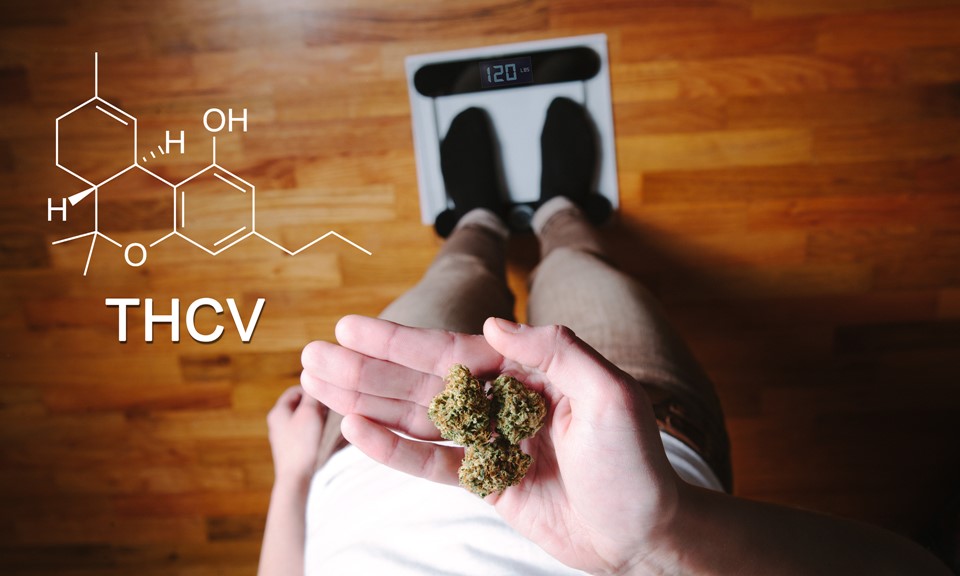
Understanding THCV
Despite sharing a molecular likeness with THC, the primary psychoactive component of cannabis, THCV deviates structurally with a shorter side chain, influencing its interaction with cannabinoid receptors in the body. Unlike THC’s potent psychoactive effects, anecdotal evidence suggests that THCV elicits a milder high, potentially acting as a counterbalance to THC’s intensity. Beyond recreational use, THCV has piqued interest for its potential therapeutic applications, notably in weight management due to its purported appetite-suppressant properties.
Additionally, preliminary research hints at THCV’s anti-inflammatory and neuroprotective potentials, expanding its relevance in various medical contexts.
THCV is often referred to as “diet” weed, because the psychoactive effects are less felt and it is acknowledged to fall somewhere between cannabis and CBD.
Does THCV Show Up On a Drug Test?
In short: yes. The consumption of tetrahydrocannabivarin (THCV) can indeed lead to a failed drug test. The surprising aspect lies in the fact that drug tests aren’t specifically searching for individual cannabinoids or traces of the marijuana plant.
Instead, they focus on detecting an enzyme produced by the body known as THC-COOH.
THC-COOH is the metabolite assigned to the breakdown of THC compounds, sharing similar structural characteristics that lead to their common metabolism. Essentially, any THC compound, including THCV, will result in the production of THC-COOH in the body. The crucial point is that if THC-COOH is identified in a drug test, the result will be positive.
The duration for which THC-COOH persists in the body after THCV consumption varies. In essence, an individual could potentially fail a drug test anywhere from a couple of days to over a month after their last consumption of THCV.
This highlights the complexity of the relationship between cannabinoids like THCV and drug testing, emphasizing the need for a comprehensive understanding of the nuances involved.
How Long Does THCV Stay in Your System?
The duration for which tetrahydrocannabivarin (THCV) remains detectable in your system can vary based on several factors, including individual metabolism, frequency of use, dosage, and the sensitivity of the drug test. Unlike THC, which is known to have a relatively long half-life, information specifically detailing the elimination timeline for THCV is limited.
As a general guideline, cannabinoids are typically detectable in bodily fluids and tissues for a period ranging from a few days to several weeks.
THCV is not typically a primary target in standard drug tests, which usually focus on THC or its metabolites. Despite this, if you have used THCV recently, then you may fail a drug test.
How Long Does THCV Stay in Your Urine?
The drug tests that account for approximately 90% of those administered in the United States are urine tests, commonly known as urinalysis. These tests are widely employed by employers, probation officers, and are also prevalent in home drug testing kits. The popularity of urine tests can be attributed to their reliability, affordability, and quick turnaround time.
Urine tests are adept at detecting the presence of THC-COOH. Following the consumption of cannabinoids, including THCV, THC-COOH can be identified in a person’s urine for a variable duration. The detection window typically ranges from as short as 2 days to several weeks after the last dosage.
How Long Does THCV Stay in Your Blood?
Unlike urine tests, which can indicate past use but not necessarily current impairment, blood tests provide a real-time snapshot of the substances circulating in the bloodstream.
These tests are frequently employed in hospital settings to assess patients experiencing symptoms that may be linked to substance use.
Whether it’s to determine the cause of altered mental status, unusual behavior, or other symptoms, a blood test can reveal whether certain substances are currently affecting an individual. This real-time insight is crucial for medical professionals to provide appropriate and timely care.
For cannabis and cannabinoids, including THCV, blood tests can detect their presence shortly after consumption. However, the detection window for cannabinoids in blood is relatively short compared to urine, typically ranging from a few hours to a couple of days, depending on factors such as frequency of use, dosage, and individual metabolism.
While blood tests are excellent for immediate detection of intoxication, they may not be as commonly employed in routine workplace drug testing due to their invasiveness and the relatively short window of detection.
Urine tests, with their longer detection window, are often more practical for employment-related drug screening.
Hair strand tests, also known as hair follicle tests, offer a unique perspective on an individual’s substance use history. Unlike urine or blood tests, hair tests have an extended detection window, capable of revealing substance use patterns for approximately 90 days or more after the last dosage.
The process involves taking a small sample of hair, typically around 1.5 inches, which is then analyzed for the presence of drug metabolites that have been incorporated into the hair shaft during its growth.
Due to their extended detection window, hair tests can provide a more comprehensive overview of an individual’s substance use over a more extended period.
However, hair strand tests are not as commonly used as urine or blood tests due to certain limitations. They have a longer turnaround time and are generally more expensive. Additionally, the accuracy of results can be affected if the person has dyed their hair, as the chemicals in hair dyes may interfere with the testing process.
How Long Does THCV Stay in Your Saliva?
Affordable, with a fast turnaround, saliva tests, also known as oral fluid tests, are another method used to detect the presence of drugs, including cannabinoids like THC and THCV. However, their effectiveness is limited by a relatively short detection window.
Saliva tests are particularly suitable for determining recent drug use, as they can generally detect substances within the last 10 hours. This makes them less practical for employment or probation settings where a more extended history of drug use is often of interest. However, this short detection window makes saliva tests highly effective for specific purposes, such as roadside drug testing at traffic stops.
How Long Does THCV Stay in Your Perspiration?
It may be surprising, but collection of sweat is another method of drug testing. However, due to the expense and invasiveness, this is limited to studies and clinical trials.
What Affects How Long THCV Stays in Your System?
Several factors can influence the outcome of a drug test, and it’s essential to be aware of these variables when interpreting the results. The accuracy and reliability of drug tests can be affected by factors such as:
1. Frequency of Use
Individuals who use substances more frequently are likely to have higher levels of drug metabolites in their system, increasing the chances of a positive test result.
2. Dosage
The amount of the substance consumed can impact the concentration of metabolites in the body. Higher doses may result in longer detection times.
Thinking about trying THCV? Here’s a complete guide to how much THCV you should take.
3. Metabolism
Variations in metabolism among individuals can affect how quickly the body processes and eliminates substances. Faster metabolism may lead to quicker clearance of drugs from the system.
4. Body Mass
Body fat percentage and overall body mass can influence the storage and release of drug metabolites. Substances with a higher affinity for fat may be detectable for a longer period in individuals with higher body fat.
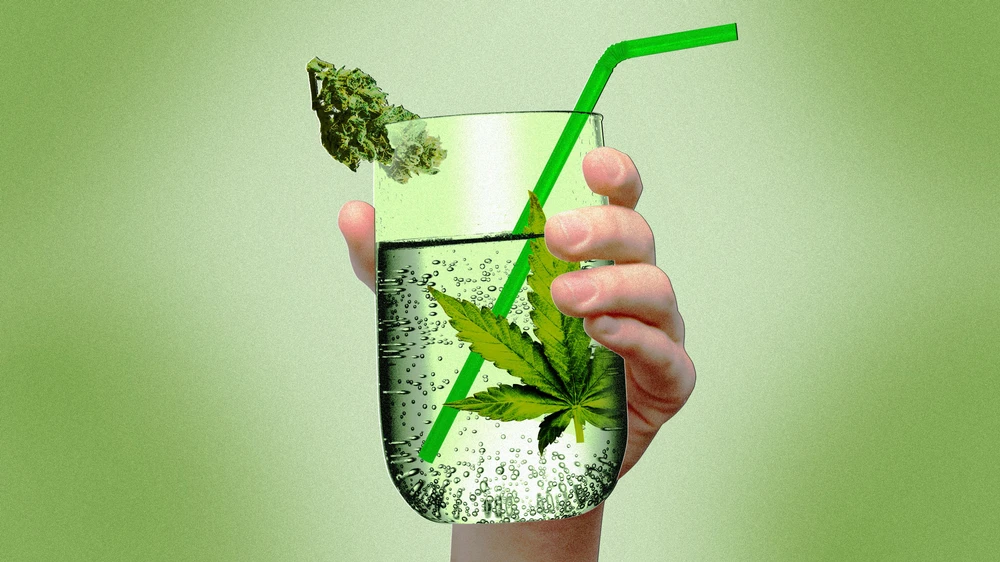
5. Hydration Levels
Adequate hydration can potentially dilute drug metabolites in urine, although excessive water consumption may raise suspicions of tampering.
6. Type of Test
Different types of drug tests (urine, blood, saliva, hair) have varying detection windows and sensitivities. For example, urine tests are more common for employment screening, while blood tests may be used to assess recent intoxication.
7. Cross Reactivity
Some substances or medications may cross-react with the test and produce false-positive results. It’s important to disclose any medications or supplements taken to the testing authority.
8. Method of Delivery
Gummies are generally going to stay in your system longer, whereas vaping breaks down in your body more quickly.
9. Time Since Last Use
The time elapsed since the last use of the substance is a crucial factor. Different drugs have distinct elimination half-lives, affecting how long they remain detectable in the body.
10. Quality of Testing
The accuracy of the testing method and the laboratory’s adherence to quality control standards can impact the reliability of results.
Why Does THCV Stay in Your System for So Long?
Research has shown that cannabinoids are stored in the body’s fat cells. They are then released slowly over time. If you are a frequent user of cannabinoids, then they can build up inside your body – resulting in them staying in your system for longer.
It is important to note, that while THCV shares some similarities with THC, research on its pharmacokinetics and metabolism is not as extensive. The available information is often based on general principles of cannabinoid metabolism. As the understanding of THCV specifically continues to evolve, more detailed information about its elimination from the body may emerge.
Can You Remove THCV From Your System?
There are methods that may support the body’s natural detoxification processes, but effectiveness can vary among individuals. Furthermore, complete elimination may simply take weeks.
Some methods to help remove THCV from your system can include:
- Drinking water
- Drinking cranberry juice
- Drinking green tea
- Trying some zinc
- Taking a sauna
- Exercising
It should be noted that attempting to “cheat” or manipulate drug tests through extreme methods, such as excessive water intake or the use of detox products, can have unpredictable results and may even lead to a diluted or invalid sample.
Ultimately if you have a drug test coming up, it may be wise to simply abstain if possible.
So, Will THCV Show Up on a Drug Test?
If you have consumed THCV within a month of a drug test, then there is a possibility that you will fail the drug test.
Understanding the nuances of THCV and drug testing is crucial. Whether exploring the potential benefits of THCV or facing drug testing requirements, individuals are encouraged to stay informed, consult professionals, and make decisions aligned with legal and ethical considerations.
The relationship between cannabinoids and drug testing prompts ongoing exploration, fostering a balanced comprehension of their impact on our lives.
As research on cannabinoids continues, more specific information regarding the pharmacokinetics and elimination of THCV may become available. In the absence of comprehensive data, individuals subject to drug testing should exercise caution and stay informed about the composition of the cannabis products they consume to make informed decisions regarding their well-being and professional obligations.
Consulting with a healthcare professional or a drug testing expert may also provide personalized insights based on individual circumstances.
At Moonwlkr, we offer the highest quality THCV products. If you are looking for help with appetite suppression, or are in the market for an energy boost then look no further than here.

